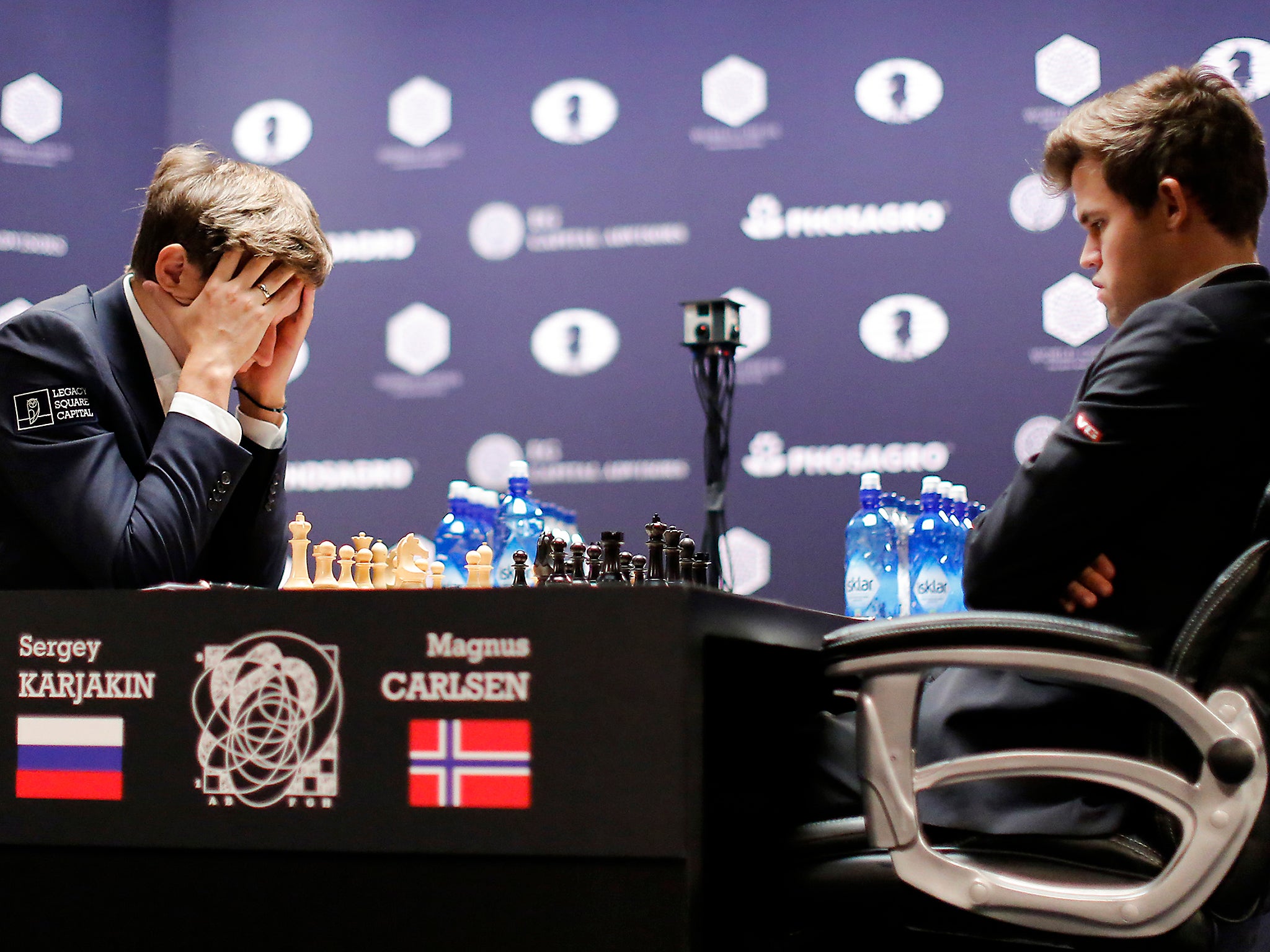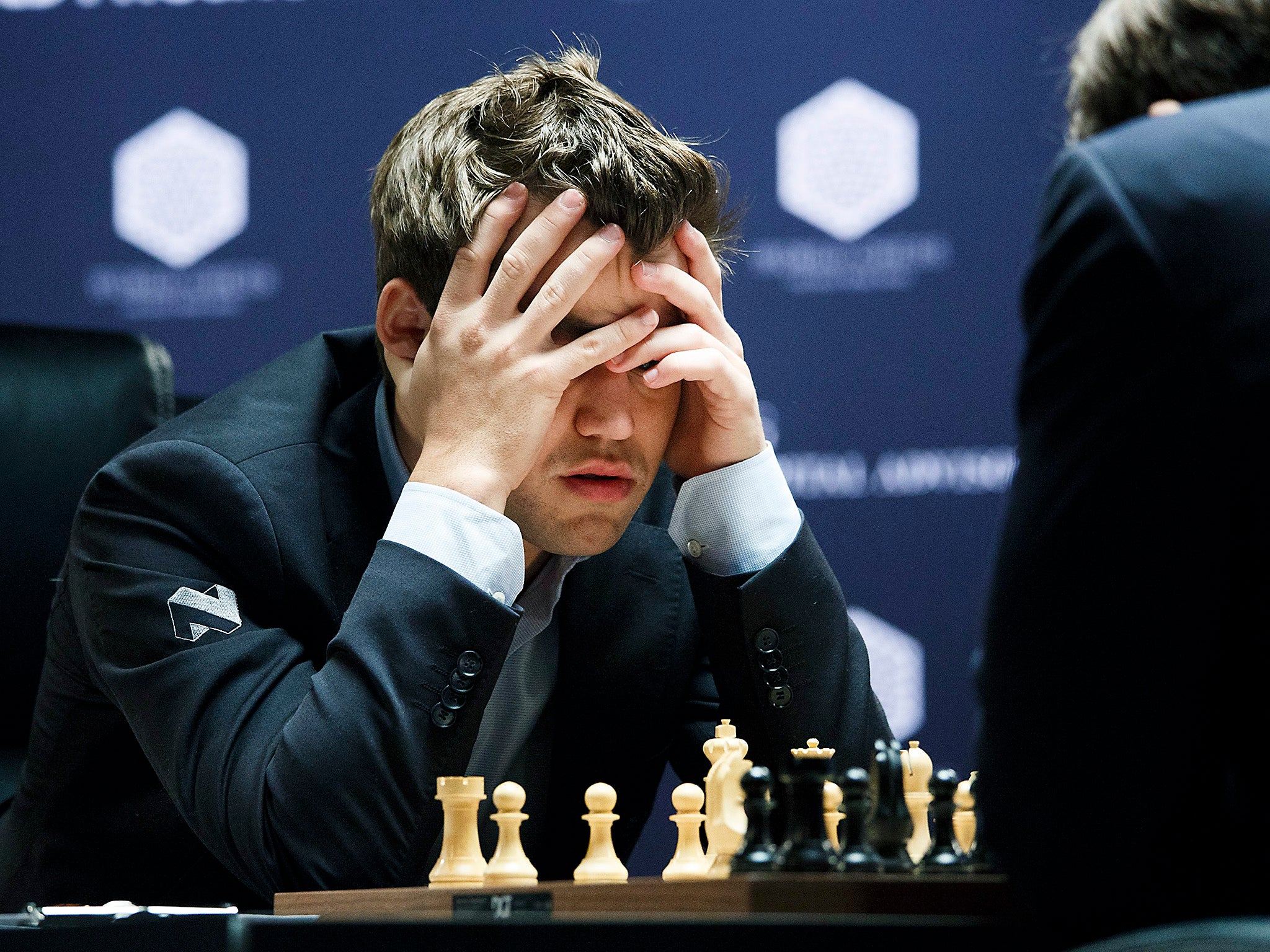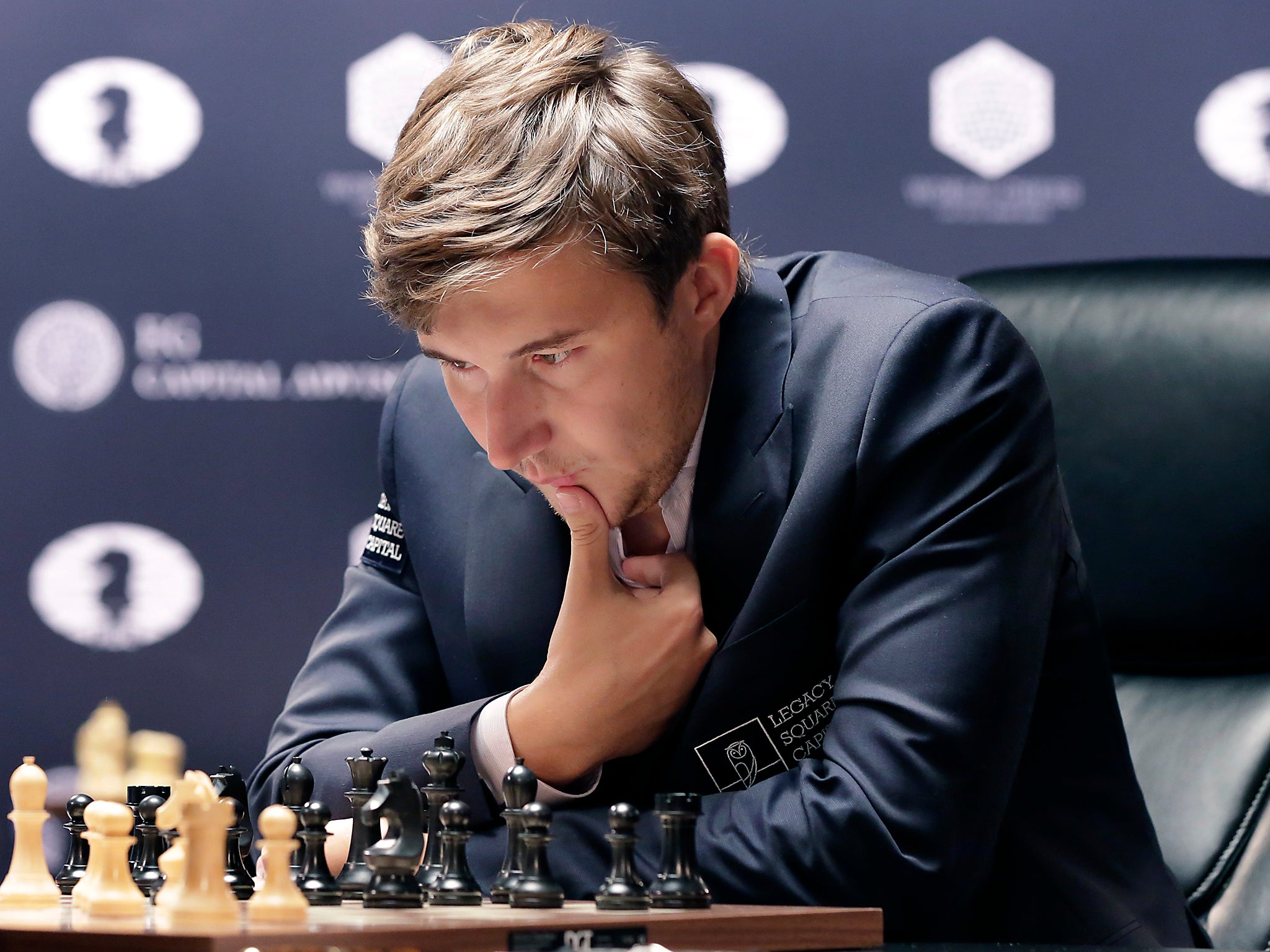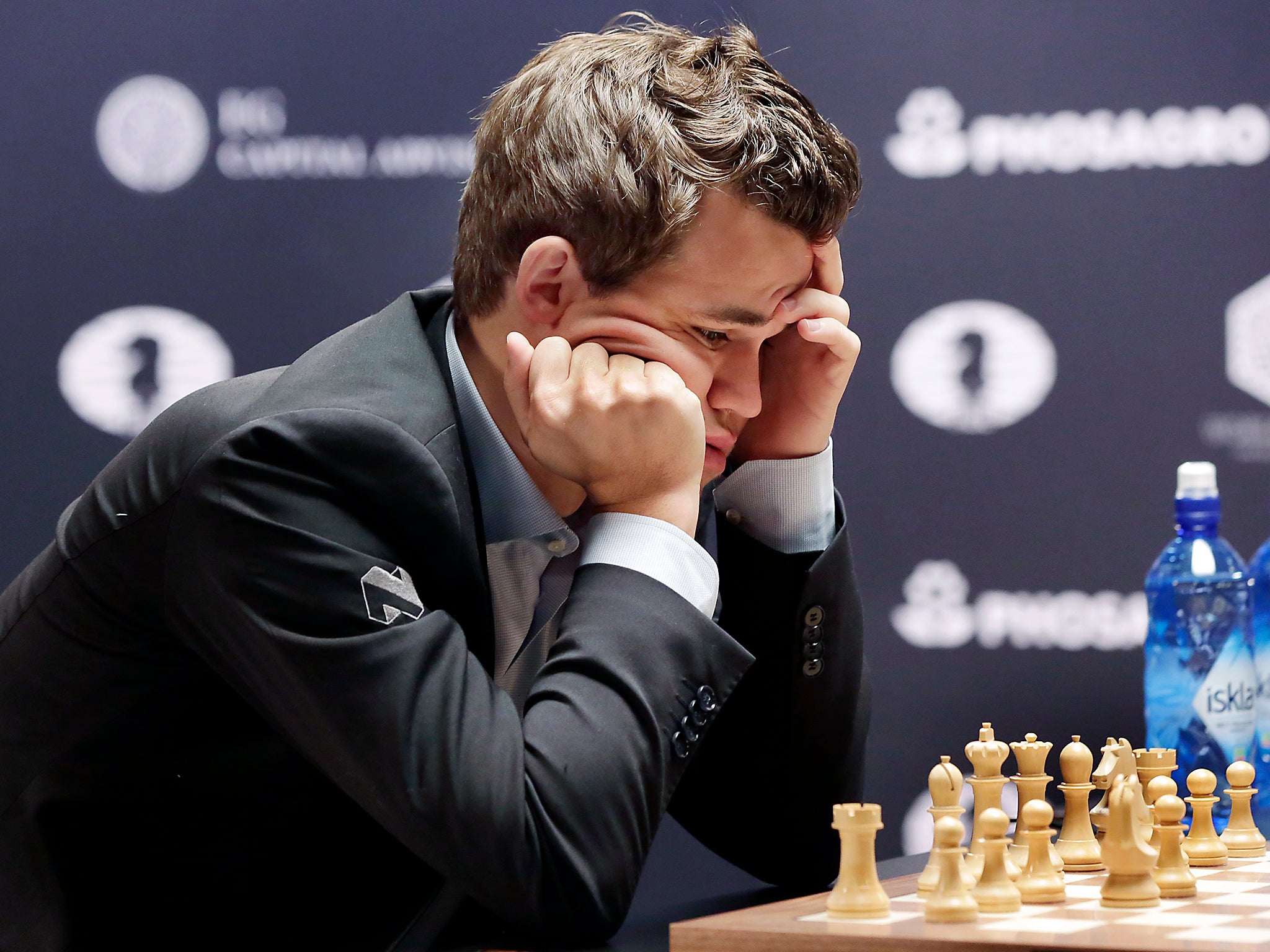The World Chess Championship is the most exciting sport event right now
It was a record tense opening - then it all kicked off

Your support helps us to tell the story
From reproductive rights to climate change to Big Tech, The Independent is on the ground when the story is developing. Whether it's investigating the financials of Elon Musk's pro-Trump PAC or producing our latest documentary, 'The A Word', which shines a light on the American women fighting for reproductive rights, we know how important it is to parse out the facts from the messaging.
At such a critical moment in US history, we need reporters on the ground. Your donation allows us to keep sending journalists to speak to both sides of the story.
The Independent is trusted by Americans across the entire political spectrum. And unlike many other quality news outlets, we choose not to lock Americans out of our reporting and analysis with paywalls. We believe quality journalism should be available to everyone, paid for by those who can afford it.
Your support makes all the difference.Never mind football’s Champions League, the Test match cricket or the Formula 1 - the most exciting sporting event on the planet right now is the World Chess Championship match in New York.
The battle of minds sees Norwegian Magnus Carlsen pitted against Russia’s Sergey Karjakin. It’s East vs West and, with Carlsen the defending champion since 2013, a big underdog story to boot.
Incredibly, the first seven games in the 12-game match ended in seven consecutive draws, putting the score at 3.5 - 3.5 (each player gets 0.5 for a draw, 1 for a win). It’s the longest opening stalemate in a World Championship match for more than 20 years.
And then, in the eighth game on Monday, it all kicked off.




With the advantage of playing with white, Carlsen tried to break out of a tense opening and press home for victory, ignoring several opportunities to settle for a draw in doing so and giving up two pawns in a bid to take the initiative.
Under the rules set by FIDE, the world chess federation, players are placed under strict time constraints which become more intense as the game wears on. They are required to complete their first 40 moves in a total of no more than 100 minutes, for example, or suffer an instant loss.
The rule was almost Karjakin’s undoing, as he rushed to finish move 40 with 10 seconds to spare.
It later emerged that Karjakin missed an opportunity at this point to press home his own advantage - but sensing his opponent’s stress, Carlsen kept trying to go for the win. In doing so, he gave Karjakin not one, not two, but three chances to counter and win - and on the third he managed to take it.
The match was an incredibly tense, more than five-hour affair, with both players appearing slightly dazed as they came away from the board. It’s no wonder the match schedule includes seven rest days.
And it is one of the most unusual features of the Championship that immediately after the game, both players are required to give short interviews and then a full joint press conference in which they pick apart how it was won, lost or drawn.
It appears that process was one which Carlsen couldn’t bear to face. He refused to speak to a reporter waiting in the wings at the venue, barging straight past to the conference table.
Then, he was left alone as Karjakin gave a customary Russian-language interview elsewhere. After two minutes in which he sported a range of the most excruciating faces you can imagine, he flapped his hands and walked off.
The gesture will be costly. Match regulations stipulate that he will lose 10 per cent of his portion of the $1 million prize fund - 60 per cent of which goes to the winner, 40 per cent to the loser.
After the game, Karjakin alone analysed how he got to a winning position, highlighting a couple of sloppy queen moves from Carlsen and saying that, at a certain point, it became pretty clear it would only go one way.
The single loss is a devastating blow to the champion’s chances. With the score at 3.5 - 4.5, simulations gave Carlsen just a 19 per cent chance of recovering the deficit and retaining his title.
Karjakin was not to be led into complacency, though, telling reporters after the “crazy” game: “There are still four games, and basically anything can happen.”
On Wednesday, game 9 went the way of the first seven, with Karjakin pressing Carlsen’s black pieces and holding a one-pawn advantage but petering out to a draw.
It means Carlsen has just three games left to go for a win, and he will be forced to play attacking chess. Game 10 is on Thursday, Game 11 on Saturday, Game 12 on Monday and, if it is back all-square by then, Wednesday will see them play out rapid-fire tie-breakers until we have a winner.
It’s exciting stuff, people.
Join our commenting forum
Join thought-provoking conversations, follow other Independent readers and see their replies
Comments